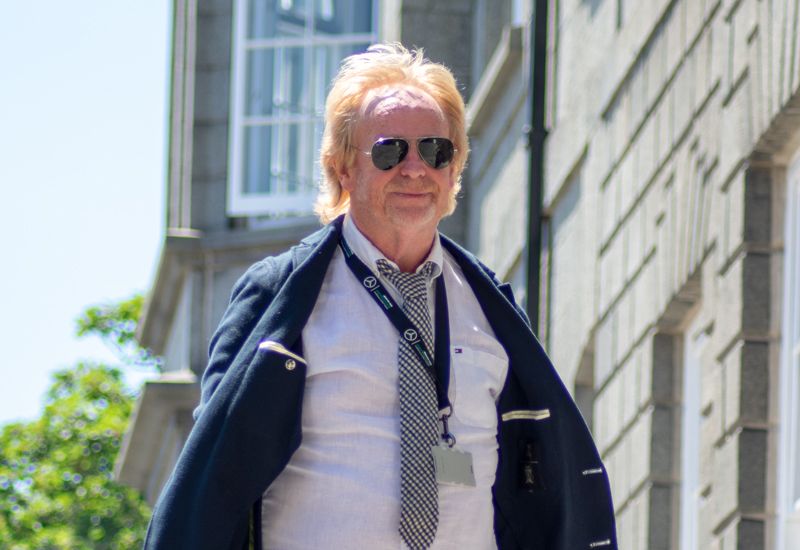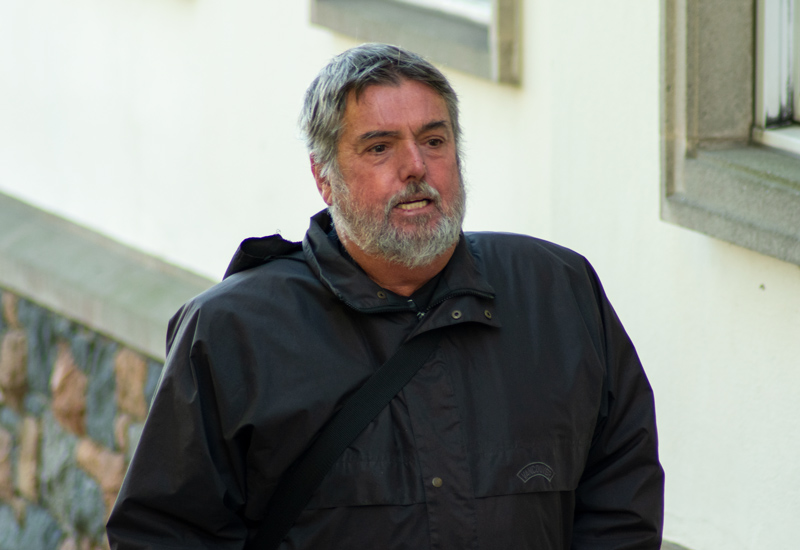


The States have directed that a new anti-discrimination law must not interfere in the right of employers to favour applicants who hold religious beliefs when appointing senior leaders at faith schools – with only three deputies voting against.
The Committee for Employment & Social Security, which was seeking direction from the Assembly as it develops the new law, had proposed that this exemption from anti-discrimination principles should be limited to a period of five years only. But by 27 votes to three the States approved an amendment from Deputy Bob Murray which argued that the exemption should apply permanently.
Religious leaders had lobbied deputies strongly to allow employers of staff at the island’s three Catholic schools – Blanchelande College and the States in the case of Notre Dame du Rosaire and St Mary and St Michael Primary Schools – to continue indefinitely to favour Catholics when appointing senior leaders. They had warned that the five-year time limit could even force the Catholic schools to close.
Opening debate on his amendment, Deputy Murray, the Vice-President of the Committee for Education, Sport & Culture and a member of the Guernsey Party, said that he was laying the amendment on behalf of his Committee.
“Education, Sport & Culture could not accept the limit of five years,” said Deputy Murray. “The ramifications of introducing any time limit – five years or otherwise – are extensive.
“It risks contravention of human rights legislation. It risks the closure of the schools involved. It risks unknown but not insignificant costs to the States, both in terms of providing any alternative arrangements and in terms of reputational damage to Guernsey. And it could even put us at odds with established UK legislation.
“Does anyone [in the States] believe that legislation which puts all that on notice can be considered good legislation? I contend that this is deeply flawed legislation and I’m not alone in being extremely concerned at the risks we as an island, and specific communities within it, are being put at – or indeed the motivation behind these proposals.”
Defending his Committee’s original proposal for a time limit of five years, Deputy Peter Roffey, President of the Committee for Employment & Social Security, reminded members that it was the States – and not his Committee – who directed that the ground of religious belief should be included in the first phase of anti-discrimination legislation.

Pictured: Deputy Peter Roffey, President of the Committee for Employment & Social Security, saw the States defeat his Committee's proposal about the appointment of senior leaders in faith schools, but said he and his members would "not lose any sleep" over the decision.
“At the moment, faith schools can discriminate in relation to recruitment or promotion to certain posts. We’re suggesting that continues but only for a period of five years from the enactment of the [anti-discrimination] law – roughly six years from today,” said Deputy Roffey.
“We’re doing that because we think it is morally unjustifiable, when two of the three schools concerned are States’ schools. There, it is the States of Guernsey which is the employer, not the Church. They are our staff. It is the Committee for Education, Sport & Culture which is the governing body, not the Church. It is the States’ human resources department which oversees recruitment, not the Church. And so it is very much the States ourselves doing the discriminating.
“Therefore, we felt there needed to be a route map determined over the next five or six years to find a good way to end this clear discrimination by Guernsey’s Government amongst its own employees on the basis of their religion or even how diligently they attend Church.”
Deputy Roffey said claims that his Committee’s proposed time limit would breach human rights law were based on “very dubious arguments”.
But Deputy Peter Ferbrache – who spoke for nearly 40 minutes, easily the longest speech of the debate – warned that “if we go along with the proposals of Deputy Roffey’s Committee we’re putting ourselves – the community of Guernsey – into a potential legal minefield”.
The only deputies to vote against Deputy Murray’s amendment were three members of the Committee for Employment & Social Security: Deputy Roffey, Deputy Lindsay De Sausmarez and Deputy Tina Bury. The other members of the Committee – Deputies Steve Falla and John Gollop – were among five deputies to abstain. Four members were absent for the vote.
Deputy Roffey said the success of the amendment was “slightly sad, but such is democracy – we’re not going to lose any sleep over it.” He said his Committee would not “die with its boots on over leadership roles in faith schools…it’s not even in the top 100 priorities we have for this legislation...but neither could we propose things we don’t believe in".
Debate on the Committee’s policy letter continues today.
Comments
Comments on this story express the views of the commentator only, not Bailiwick Publishing. We are unable to guarantee the accuracy of any of those comments.